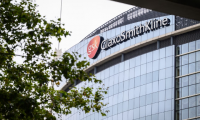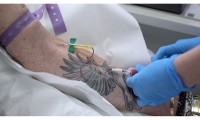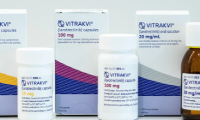-
GSK to buy Bellus Health and its chronic cough drug for $2B
- Source: drugdu
- 352
- April 20, 2023
-
Pre- and post-surgical immunotherapy-based treatment significantly improved lung cancer outcomes
- Source: drugdu
- 124
- April 18, 2023
-
Adding new vaccine type to leading immunotherapy dramatically reduced melanoma recurrence
- Source: drugdu
- 232
- April 17, 2023
-
GSK will have to pay additional royalties to AstraZeneca on cancer drug Zejula
- Source: drugdu
- 159
- April 6, 2023
-
Blood tests may spare cancer patients chemo
- Source: drugdu
- 124
- April 6, 2023
-
prioritizing efficacy when considering quality of life
- Source: drugdu
- 242
- March 30, 2023
-
Roche Holding AG Receives FDA Approval for New Cancer Treatment
- Source: drugdu
- 147
- March 24, 2023
-
Sanofi Reports Strong Quarterly Earnings, Driven by Success of Key Products
- Source: drugdu
- 123
- March 24, 2023
-
Pfizer and Astellas’ Xtandi shows promise in phase 3 prostate cancer study
- Source: drugdu
- 151
- March 21, 2023
-
New Study Shows Promising Results for Targeted Cancer Therapy
- Source: drugdu
- 177
- March 20, 2023
your submission has already been received.
OK
Subscribe
Please enter a valid Email address!
Submit
The most relevant industry news & insight will be sent to you every two weeks.













